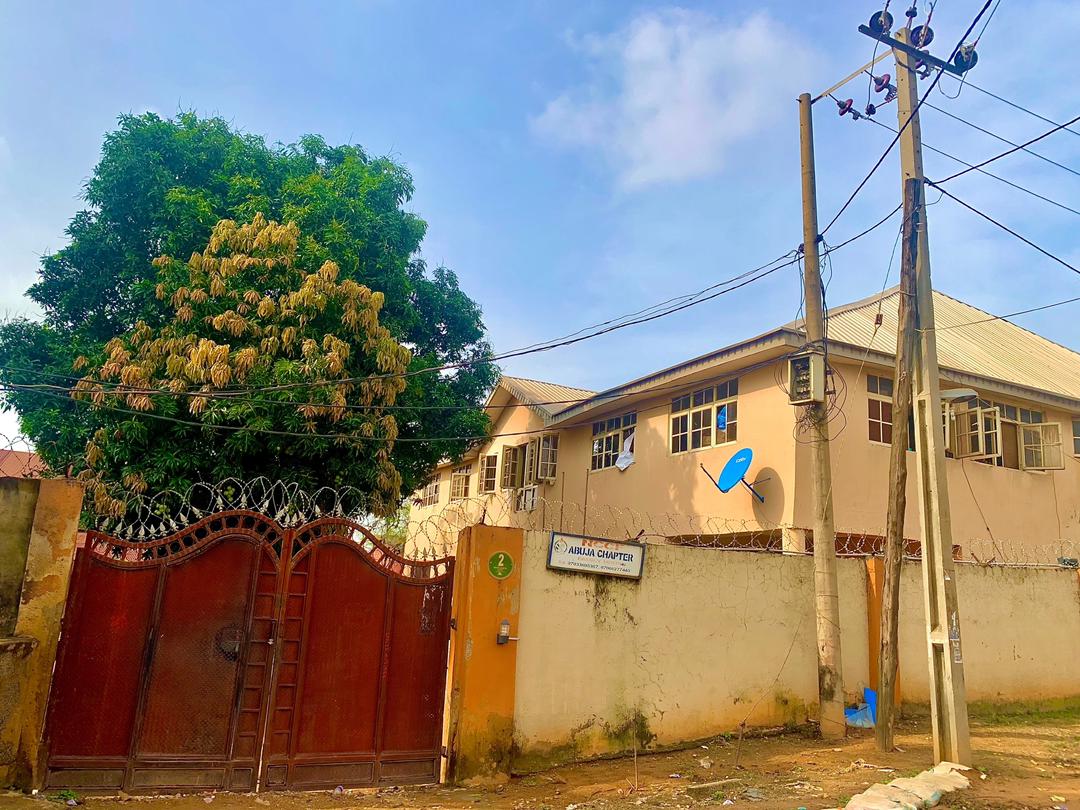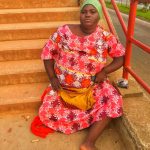Kingsley Otti had nowhere to stay after he had completed his mandatory three-week National Youth Service Corp or NYSC orientation course in Abuja.
Worried, the 24-year-old approached an executive of the Nigerian Christian Corpers Fellowship or NCCF, a group of Christian corp members, who told him that the NCCF had a bed for him.
“I owe them credit for that because the first day of leaving camp, there was nowhere for me to stay, and I couldn’t go back home that day,” he said.
It was also the same situation for Gloria Ajero. She had relocated from Sokoto to Abuja and had got to Abuja by midnight.
“I got to Abuja by 11pm. I was lost, and the man riding the bike I took almost took advantage of me. Thank God for a vigilante who came and stopped the act.” Ajero recounts her ordeal.
New to Abuja, Ajaro had nowhere to stay, and the friend she had in Abuja lived with someone else. “I couldn’t live with her. She told me about NCCF, and here I am today.”
The Organisation called NCCF.
Gbenga Oladele, a former FCT NCCF General Secretary, said the NCCF “is a product of a prophecy through Pa Sydney G. Elton, a British missionary in the 1930s. The prophecy had said that a time would come when Nigeria (the nation was yet to gain her independence) would be paying her youths to move to the nooks and crannies of the nation to preach the gospel of Jesus.”
He added that the revelation completely manifested in 1973 after the Civil War when the government of General Yakubu Gowon came up with a resolution that birthed the National Youth Service Corps scheme.
“Youths were sent to different states in the country. When they got there, they started fellowshipping in the lord’s name. These fellowships were going on at the same time in all the states of Nigeria without prior notice. As it was happening in Kaduna, it was happening in Benue, Oyo, Delta…
Then they met in Ilesa, which happens to be the base of the prophecy, where the prophecy was declared. At that time, it was not Osun state but old Oyo state.”
Oladele added, “Their next meeting was in Makurdi, Benue state. In that meeting, they came to an agreement to name the fellowship based on their state’s name. That is, the fellowship in Benue state was called Benue Christian Corps Members Fellowship (BCCF), in Oyo state (Oyo Christian corps members fellowship) and so on.
After a while, they met in 1992-3 in Jos for a conference. It was there the name NCCF was born,” he said in detail.
How it functions
NCCF functions as a tripartite, comprising a fellowship, organization and family. It has 36 state and FCT-family houses across the country, with annexes spread across towns and communities in the country.
The family house is open to all youth corps members, irrespective of religion. In admitting a house member, he or she must agree to follow the rules and regulations, which entails attending all devotion meetings and dressing decently.
Joining NCCF is free, according to the body. A bio-data form is often given to its new members to have their data and for future emergencies.
Oladele held that “NCCF is not run by the government or any organization. It is majorly run by youth corps members. However, this house was gifted by a Prince of this land. A couple; Mr and Mrs Maikori donated immensely to the house project, corps members as well, and several individuals that have been blessed by NCCF at some stages of their lives.”
The fellowship generates its income from Capitation, tithes, offerings, and free will donations. However, each family house fends for itself through a monthly fee called “the maintenance fee”. The maintenance fee is used to feed the corp members, pay electricity bills, and maintain the house.
Living with people from different backgrounds
Often, many who do not want to live under the rules of the house leave, but some love the experience of brotherhood and fellowship that the house offers.
And that is how it was for Oladele, who is very picky of people he calls friends, but “My experience living with people from different backgrounds has been an impactful one,” he said, adding, “I have been able to have friends of the same like minds. If I wasn’t in this house, I’m not sure I would be able to boast of two friends in my service year,” Oladele concluded.
For Otti, staying in the family house has “been an amazing experience,” he said, adding, “Even when the opportunity came for me to leave the house. I refused. We cook together, love, laugh, care for each other when any of us falls ill.
“Staying in the house has allowed me to socialise and have amazing friends like Joshua, Adedoyin, Marvellous, Judith. With my roommates, I started seeing a bigger bond to just corp members who had accommodation issues,” he said.
For Ajero, she said the House helped her overcome the trauma of what happened when she moved to Abuja. “I feel at home here…” she said with a smile.
Kingsley Otti and Gloria Ajero, both new to Abuja after their NYSC orientation, struggled to find accommodation until they were helped by the Nigerian Christian Corpers Fellowship (NCCF). The NCCF is a supportive community for youth corps members, providing housing and other aid irrespective of religion.
The NCCF originated from a prophecy by Pa Sydney G. Elton in the 1930s and became prominent after the 1973 Civil War through the NYSC scheme. It operates as a fellowship, organization, and family with numerous state and annex houses.
The family houses require members to adhere to rules, such as attending devotional meetings and maintaining decent dress codes. Despite being primarily self-sustained through donations, tithes, and maintenance fees, the NCCF has benefited from individual contributions for housing projects.
Members like Oladele and Otti testify to the positive experiences of brotherhood, fellowship, and personal growth gained from living in NCCF houses. Ajero found solace and recovery from her traumatic arrival in Abuja within the community.






